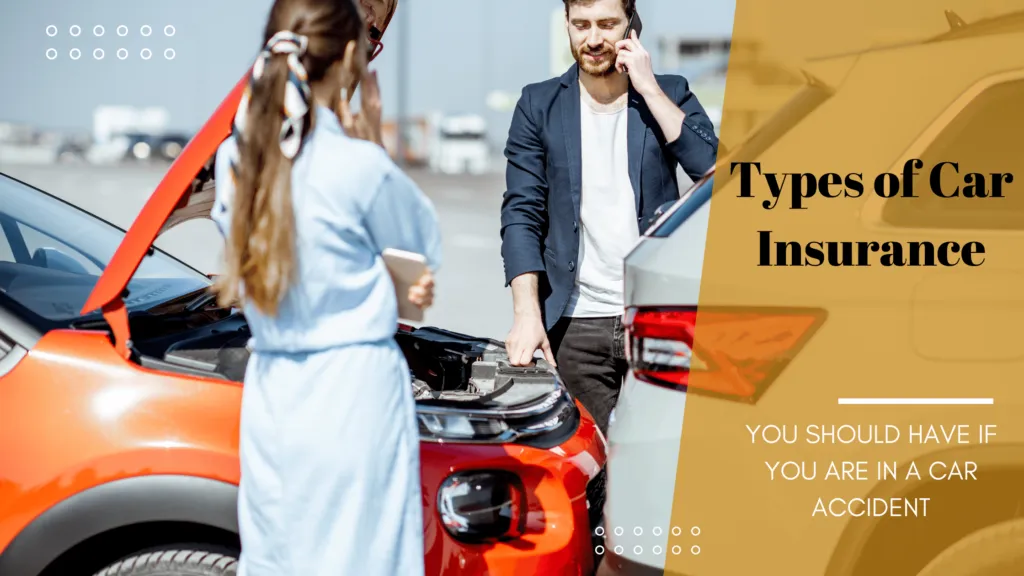Actually, the question isn’t if you should have certain types of car insurance but must. Certain types of car insurance are required across the majority of the United States for the exact purpose of covering you if you are in a car accident and sustain damage and injuries. Medical and repair costs can be staggering, so car insurance is more than necessary to be able to pay for it without compromising your finances.
At the same time, being responsible for any damage or injuries that you cause in an accident is a legal obligation. When it comes to car insurance, you should have it when you are involved in a car accident; there are six major ones you should keep in mind –these coverages can be a worthwhile investment.
General Liability Car Insurance And Accidents
When people mention car insurance, they are often referring to general liability coverage. This is required in nearly every state for every vehicle with a license plate registered with the state, regardless of use. General liability is used when you are responsible for causing a car accident and, by extension, any damage to another’s car or injuries to them.
With general liability car insurance, any repair jobs and medical treatment you owe to another driver are covered based on how much you set your coverage to. Every state has its own minimum amount of coverage that every driver should at least carry. If you are injured or caused damage by another driver, then their own general liability car insurance will cover you in that accident since it was not your fault. Again, it is common for several states to use the fault system when determining whose insurance must pay out.
Collision Car Insurance And Accidents
Collision car insurance is especially used for accidents, specifically the at-fault kind. If you caused a car accident with injuries and damage to another driver(s), your liability coverage will cover those expenses, but that leaves the question of repairs to your own car as it likely sustained some damage in the accident.
Collision car insurance comes in to cover any repairs to your own car after an at-fault accident. While this type of coverage isn’t legally required, it might be for leased or rental cars. This is also one of two coverages that make up what is known as full car insurance.
Comprehensive Car Insurance And Accidents
Making up the second half of full auto coverage is comprehensive car insurance. Not all damage occurs when you are in a car accident while driving. There may be some issues that arise from where you park or store your car when you’re not using it.
Parked cars are always subject to climate and criminal damage if they aren’t kept somewhere secure. Comprehensive insurance is often used in cases of storm damage, theft, and vandalism if you keep your car outside rather than in a garage. For high-end or expensive cars, this coverage can go a long way.
Personal Injury Protection Car Insurance And Accidents
You may have been wondering about your own injuries in an accident that you caused. Personal injury protection, or PIP, is your answer. This coverage will insure you for any medical treatments you will need following a car accident that you caused. This car insurance is actually required in 12 states since it is never guaranteed that you will get out of one unscathed.
Uninsured Motorist Car Insurance And Accidents
While car insurance is required in nearly every state, there are still several instances of drivers forgoing car insurance altogether when they really shouldn’t be. So, if you were to be hit by one of these drivers, they wouldn’t be able to fully cover the damages or injuries they cause without insurance. That is why 20 states require uninsured motorist coverage so drivers can be insured when they are hit by someone who isn’t. Again, this covers both personal injuries and property damage as opposed to just one of the two.
Medical Payments Car Insurance And Accidents
This medical payment coverage for drivers is different from personal injury protection because it mainly covers all the immediate medical payments and treatments after an accident, regardless of fault. This isn’t as commonly required around the United States but can still go a long way protection-wise if you find yourself in a car accident.
Is Car Insurance Much Different From Motorcycle Insurance?
A good question to end on is what all this coverage looks like when applied to a motorcycle. The answer is not that much different. As registered vehicles on the road, motorcycles are required to have liability insurance just like cars are. At the same time, motorcycles should have more comprehensive coverage due to their more mobile nature and being an easier target for crime.
You can shop for motorcycle insurance like standard car insurance, but putting together your coverage will look a little different. Always really look at your vehicle and consider things like age and capabilities when setting insurance coverage if you were to ever get into an accident.

